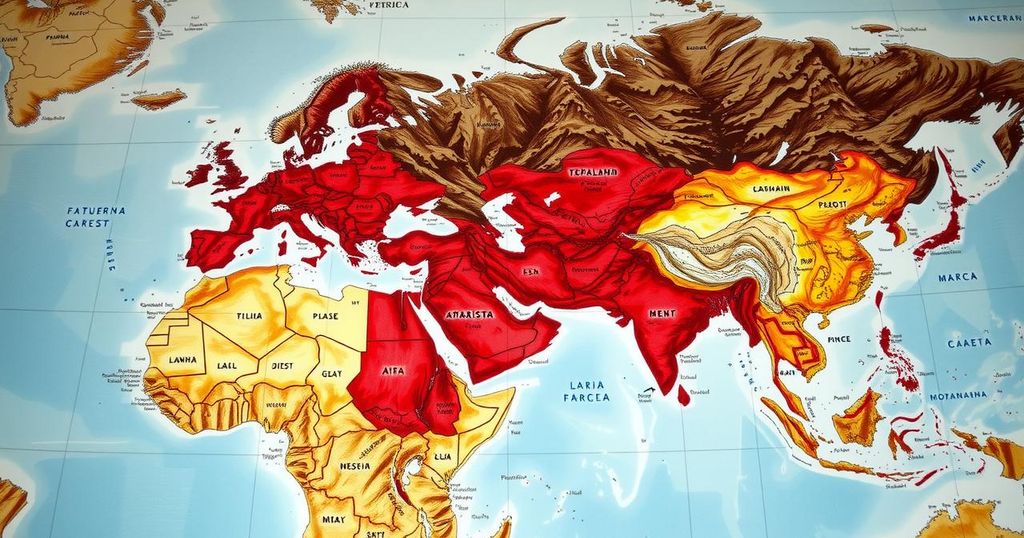Israel’s recent map, claiming extensive territorial rights, has sparked outrage in the Arab world, particularly concerning sovereignty issues over Palestine and neighboring states. Jordan, Qatar, and the UAE have condemned the map, viewing it as an endorsement of expansionist policies that could jeopardize peace efforts in the region.
A diplomatic crisis has erupted following the release of a controversial map by Israel’s Ministry of Foreign Affairs, which claims historical territorial rights to significant portions of Palestine, Jordan, Lebanon, and Syria. This map, promoted on Arabic social media accounts, portrays an interpretation of Israel’s historical empire dating back 3,000 years. The announcement has met with vehement backlash from Arab nations, who view it as a direct challenge to their sovereignty and as an embodiment of Israel’s expansionist ambitions.
The map’s publication included assertions regarding ancient kings of Israel and their reigns, which Israel claims marks a continuous historical presence. However, the depiction of territories, including heavily disputed Palestinian areas, has incited outrage among Palestinians and surrounding Arab states. These governments are urging the international community to intervene and check Israel’s purported expansionism, which they believe threatens regional stability.
Jordan’s Foreign Ministry strongly denounced the post, describing it as an egregious misrepresentation aimed at undermining the establishment of a sovereign Palestinian state. Similarly, Qatar’s Foreign Ministry has labeled the map a clear violation of international norms, warning that such actions could vastly derail peace initiatives in the region. The United Arab Emirates echoed these sentiments, condemning the official depiction of “historic Israel” as a blatant violation of international law and an attempt to perpetrate further occupation.
This incident occurs against the backdrop of ongoing tensions regarding land claims and sovereignty in the region. The creation of the state of Israel in 1948 led to lasting conflict with Palestinians and neighboring Arab states, focusing on rights to land that dates back thousands of years. The situation remains fraught, with numerous attempts at peace stymied by territorial disputes, claims of sovereignty, and radical views on both sides. The map’s unveiling taps into deep-seated grievances and complex historical narratives that continue to shape the Middle East’s geopolitical landscape.
The release of Israel’s new map has ignited a significant diplomatic controversy, stirring condemnation from multiple Arab states. The problematic implications of Israel’s territorial claims underscore longstanding regional tensions related to sovereignty and the pursuit of peace. As nations react strongly, calls for international oversight and adherence to existing legal frameworks concerning land rights are growing, emphasizing the global community’s critical role in the Israeli-Palestinian conflict.
Original Source: www.india.com






